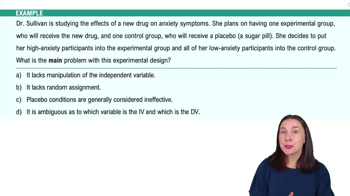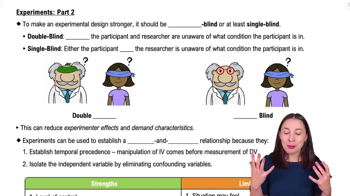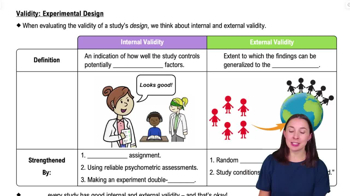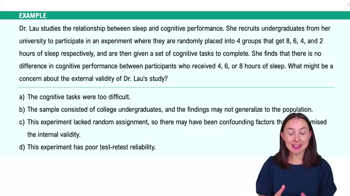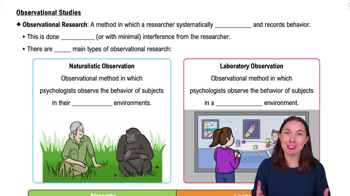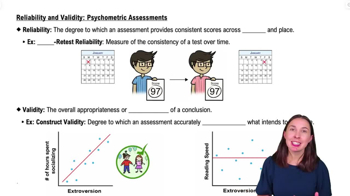Table of contents
- 1. Introduction to Psychology1h 43m
- 2. Psychology Research2h 20m
- 3. Biological Psychology2h 41m
- 4. Sensation and Perception28m
- 5. Consciousness and Sleep32m
- 6. Learning41m
- 7. Memory34m
- 8. Cognition37m
- 9. Emotion and Motivation35m
- 10. Developmental Psychology33m
- 11. Personality48m
- 12. Social Psychology41m
- 13. Stress and Health41m
- 14. Psychological Disorders44m
- 15. Treatment47m
2. Psychology Research
Intro to Research Methods
Struggling with Psychology?
Join thousands of students who trust us to help them ace their exams!Watch the first videoMultiple Choice
Mitzi's child has facial deformities, a smaller than normal head, heart defects, learning difficulties, and delayed growth. If these defects can be traced to a teratogen ingested by Mitzi during pregnancy, it MOST likely would have been
A
cocaine
B
heroin
C
alcohol
D
nicotine
 Verified step by step guidance
Verified step by step guidance1
Understand the term 'teratogen': A teratogen is any agent that can cause a birth defect or negatively alter cognitive and behavioral outcomes. Common teratogens include drugs, alcohol, and certain infections.
Identify the symptoms described: The child has facial deformities, a smaller than normal head, heart defects, learning difficulties, and delayed growth.
Link the symptoms to a specific teratogen: These symptoms are characteristic of Fetal Alcohol Syndrome (FAS), which is caused by alcohol consumption during pregnancy.
Consider the effects of other substances: Cocaine, heroin, and nicotine can also affect fetal development, but they typically do not cause the specific combination of symptoms associated with FAS.
Conclude that alcohol is the most likely teratogen: Given the specific symptoms described, alcohol is the most likely teratogen responsible for these developmental issues.

 1:46m
1:46mWatch next
Master Roadmap of the Lesson with a bite sized video explanation from Hannah Gordils
Start learningRelated Videos
Related Practice










